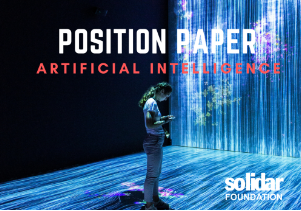Training Academy 2024: Artificial Intelligence’s implications for social justice
SOLIDAR’s Training Academy 2024 took place on 5-6 November, in Brussels, under the title ‘ReclAIming the power: building civil society’s perspective on AI for social justice’.
This activity was part of the effort of demystifying AI and affirming the right of civil society to have a say in how AI is developing and to intervene to make sure that fundamental rights are not threatened, but rather upheld through and despite the use of new technologies. AI is developing at a high pace and becoming more prominent in every aspect of our lives, from work life to service provision, from education to migration management. The EU has tried to put in place some measures to regulate AI, namely with the AI Act, but more is needed to encompass all risks (and opportunities) carried by AI and to democratise its application. Therefore, to ensure that AI is correctly applied, knowledge needs to be created within society at large and within civil society organisations (CSOs) more specifically – including in SOLIDAR network.
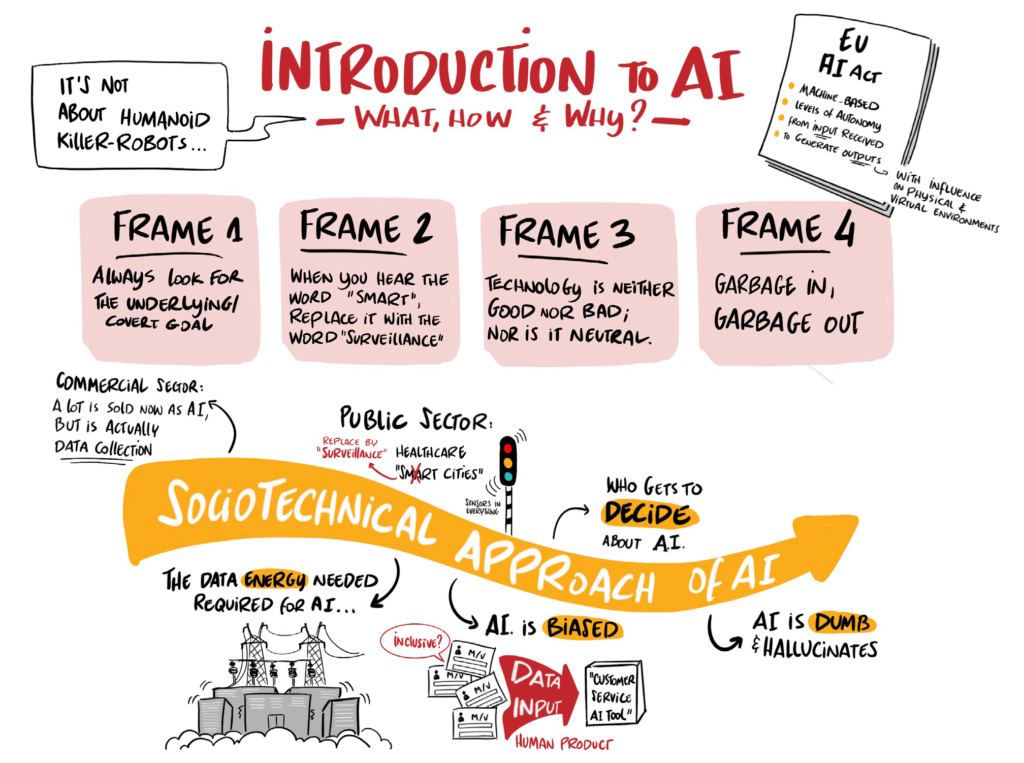
Structure
On Day 1, an introduction to AI for CSOs took place. Ella Jakubowska, Head of Policy at European Digital Rights (EDRi), intervened to give participants tools to understand what is AI, its main applications, the risks and opportunities it carries, and how it is being regulated at the EU level. The EU/AI Act introduces risk-based regulation, banning some harmful systems but not all, and leaving most AI without transparency obligations. The session ended with a reflection on the role should civil society play in AI’s development and how to make it more democratic. SOLIDAR thanks the European Economic and Social Committee (EESC) for graciously hosting us on that day.
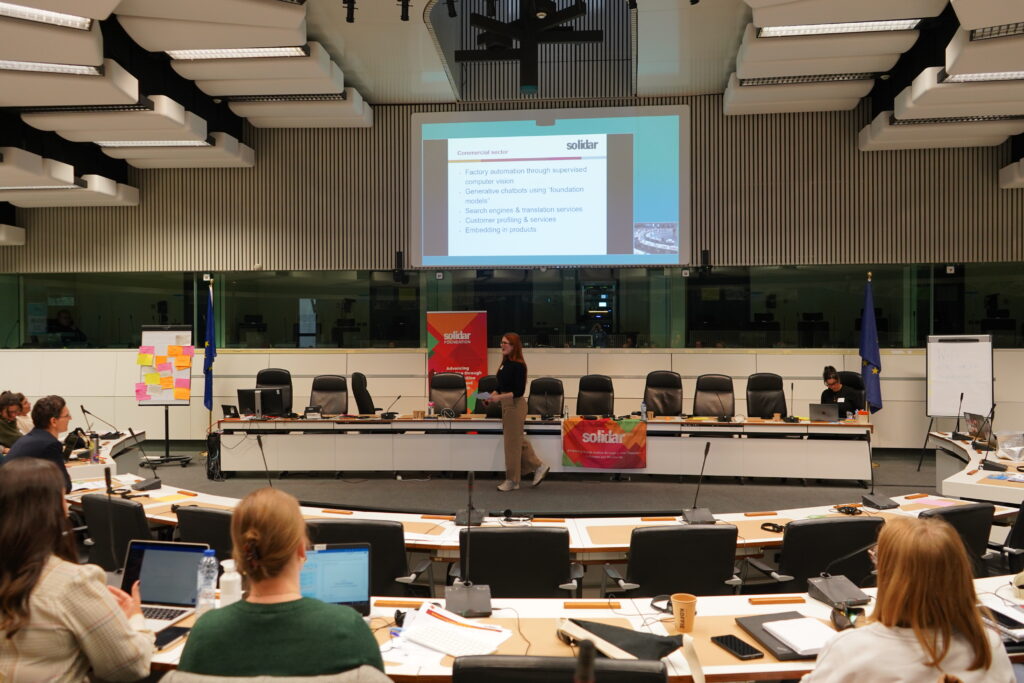
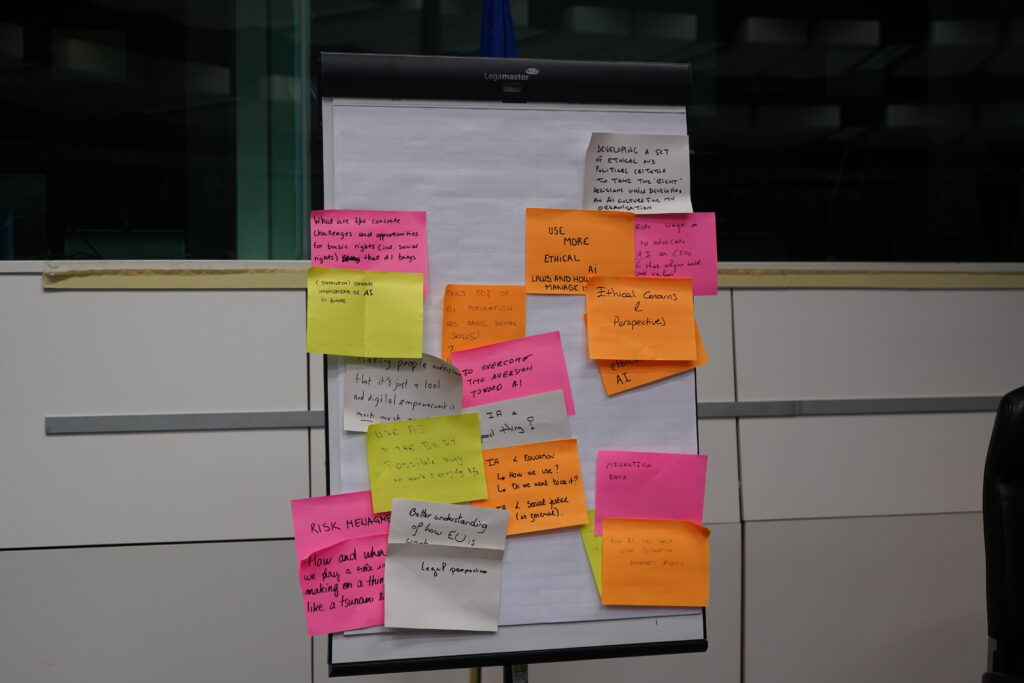
Day 2 allowed participants to dig more into the practical declinations of AI in specific fields, namely the welfare systems, education and border control and migration management practices. Across all areas, the participants discussed examples of application, how to mitigate risks posed by AI and potential action for civil society, at national and EU level.
In the welfare system, Asena Soydaş, Project manager on digitalisation at reframe[tech], the training explored how algorithms and other AI techniques are and will be employed by welfare services to identify beneficiaries, share information, determine levels of benefits, detect alleged fraud. In public or private welfare systems that are often understaffed, AI is often presented as an opportunity for efficient processing of large numbers of requests, but human-centered reflection on its usage and human oversight is always critically needed.
Regarding education, the training dove into the applications of AI in the education and lifelong learning fields. Sandra Troia, Consultant for ALL DIGITAL, presented some of the current applications of AI, and frameworks like DigCompEducation and UDL 3.0 that guide ethical AI use in this field.
For what concerns migration, Oyidiya Oji, Policy and Advocacy Advisor for Digital Rights at the European Network Against Racism (ENAR), told the role that AI is already playing in Fortress Europe. Biometric databases, predictive software, and surveillance technologies are used to ‘manage’ migration but inevitably stigmatise or outright criminalise people on the move. Ultimately, AI adds an extra layer of risk of discrimination to policies and practices that are already carrying negative bias towards migrants, and people of colour whose racialisation stands as a proxy for their migration status. Circling back to the EU AI Act, Oyidiya explained the Act misses prohibitions for such high-risk systems in migration contexts.
Joyce van Kerckhove, from Visuality, was present throughout the training to facilitate interactions, and is also producing a toolkit compiling the training’s main learnings and takeaways, for participants to come back to.
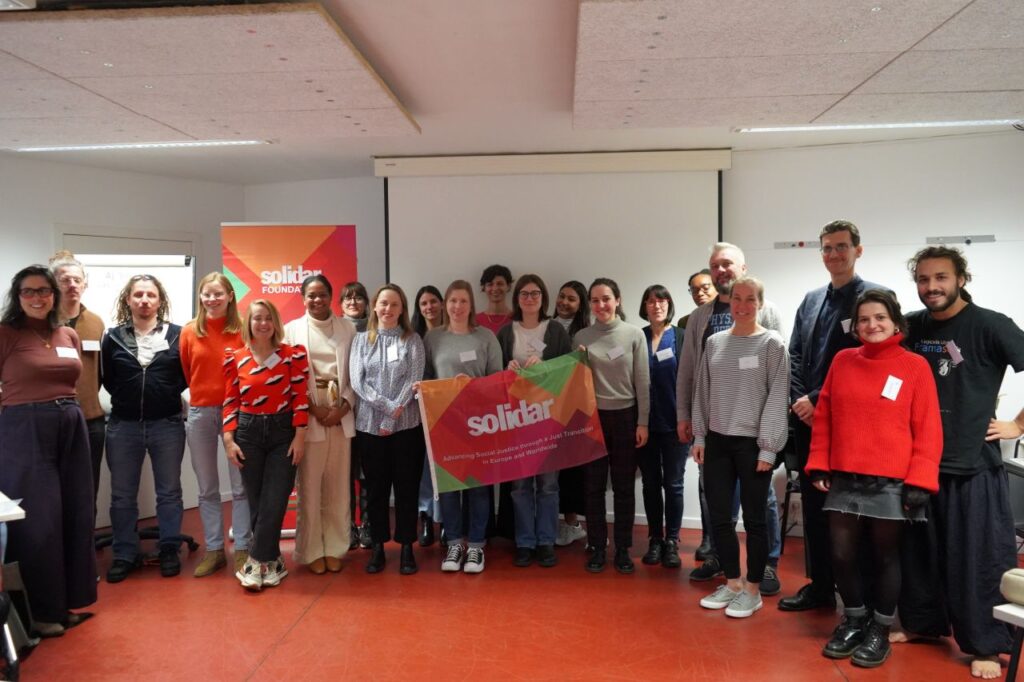
Learnings, takeaways and outcomes
While all participants in the group were united in their belief that fundamental rights and equity come first, there were diverging views on the approach to have to technologies like AI and whether to take it for granted or not. This led to a stimulating debate on whether to try to boycott or stop AI deployment altogether, or accept it as a part of society and engage in making it ethical.
Background information
The Training Academy is an annual training opportunity offered by SOLIDAR for its members to increase their knowledge of and capacity to engage in policy themes connected to social affairs, inclusion and education at EU level. This activity is organised in the framework of the programme “Realising a Social Europe for All 2024”, funded by the EaSI strand of the ESF+.


